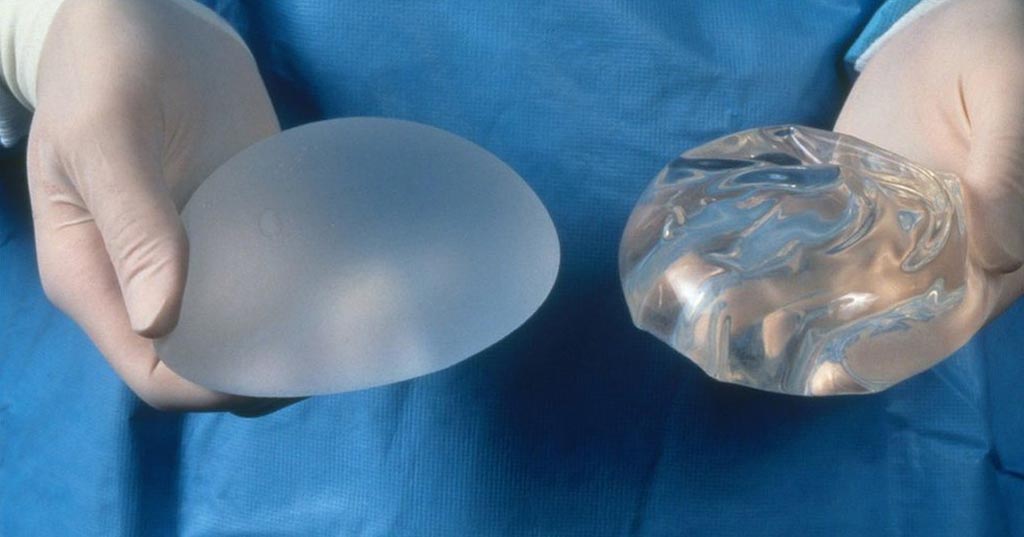Silicone Breast Implants Associated with Rare Diseases
By HospiMedica International staff writers
Posted on 26 Sep 2018
A new study reveals that silicone implants are associated with rare diseases, autoimmune disorders, and other conditions, although a causative relationship was not established.Posted on 26 Sep 2018
Researchers at the University of Texas MD Anderson Cancer Center (MD Anderson; Houston, USA) conducted a multicenter cohort study that analyzed large post-approval studies (LPAS) initiated by the U.S. Food and Drug Administration (FDA) in order to monitor long-term implant-related outcomes and systemic harms of silicone and saline breast implants placed during primary, revision, augmentation, or reconstruction surgery. Systemic harms, self-harm, reproductive outcomes, and implant-related complications were analyzed by implant composition and operative indication.

Image: Silicone and saline breast implants shown side by side (Photo courtesy of Science Photo Library).
LPAS data was available for 99,993 patients, with 56% of the implants made of silicone. Silicone implants were associated with higher rates of Sjogren syndrome, scleroderma, rheumatoid arthritis, stillbirth, and melanoma. The study found no correlation between breast implants and suicide or fibromyalgia. There were higher patient-reported rates of stillbirth, preterm birth, and neonatal intensive care unit (nICU) admittance, but no association with miscarriage. Lower self-reported rate of birth defects or congenital malformation were found among women with silicone implants.
Regarding short-term outcomes, rupture was significantly higher for saline implants (2.5% versus 0.5%), while capsular contracture was higher for silicone ones (5% versus 2.8%). At seven years from primary augmentation, the overall reoperation rate stood at 11.7%, while for revision breast reconstruction the reoperation rate was 25%. One case of breast implant associated with anaplastic large cell lymphoma was reported. Capsular contracture occurred in 7.2% of primary augmentations and 12.7% of primary reconstructions. The study was published on September 18, 2018, in Annals of Surgery.
“All surgical procedures and implantable devices have potential complications and side effects. As plastic surgeons, it’s our responsibility to continually monitor the long-term safety of breast implants and make sure that all patients and physicians are aware of any possible adverse outcomes,” said senior author Mark Clemens, MD. “It’s vital that women with implants be aware of the potential risks, so they can identify symptoms early and consult with their doctors. Fortunately, many of the diseases and conditions that have an association with implants are quite rare, so awareness is that much more important.”
A breast implant is a prosthesis used to change the size, shape, and contour of a woman’s breast. There are two general types of breast implant devices, defined by their filler. Saline implants are composed of an elastomer silicone shell filled with sterile saline solution during surgery; the silicone implant has an elastomer silicone shell pre-filled with viscous silicone gel. The two approved manufacturers of silicone gel-filled breast implants in the United States are Allergan (Irvine, CA, USA) and Mentor (Santa Barbara, CA, USA).
Related Links:
University of Texas MD Anderson Cancer Center
Allergan
Mentor












.jpg)

.jpg)